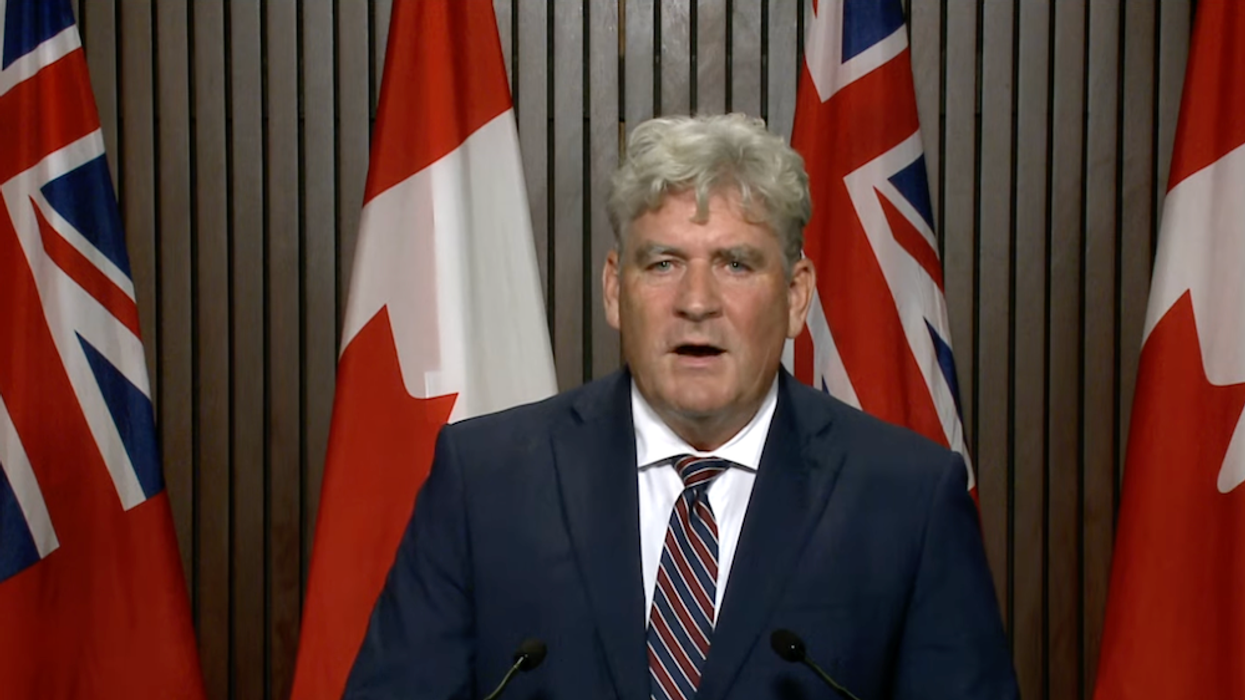Two provincial political leaders held press conferences at Queen's Park on Thursday morning: Housing Minister Paul Calandra and Interim Ontario Liberal Leader John Fraser. As to be expected, the latter took great issue with much of what the former had to say.
For the second day in a row, Calandra defended the provincial government's decision to open up Greenbelt sites for housing development, repeating the same talking points Ontarians have heard for weeks: that Ontario is set to receive a higher-than-expected level of immigrants in the coming years and the government is steadfast in its goal of building 1.5 million homes by 2031 to make housing more affordable.
Calandra, like former Minister of Housing Steve Clark before him, deflected when asked why Greenbelt land is being used as a first resort when other land outside of the Greenbelt, that already has access to — or can easily be equipped with — essential services like roads and plumbing, is available and can accommodate the Province's housing goal.
Fraser had a few ideas.
"What's happening here has never been about housing. It's never been about immigration. It's never been about what's in the public interest. What this has all been about is the furthering of private interests and making some billionaires, multi-billionaires," Fraser said.
The interim leader's point harkened back to the estimated $8.3B by which Ontario's Auditor General estimated that landowners of the removed Greenbelt sites could see their land values increase.
Calandra again spoke to the government's plans to conduct a full review of all Greenbelt lands — including the 14 that have already been removed — to see whether they meet development standards, leaving the door open for more land being removed from the Greenbelt.
Calandra has promised a "full, open, and accountable process" — a clear response to the recent Auditor General and Integrity Commissioner reports detailing a rushed, opaque, and biased selection process employed by the ministry when choosing lands to remove from the Greenbelt last year.
Fraser said he doesn't believe it will be an honest review, saying the toothpaste (the Greenbelt land) is already out of the tube.
"I think that the review will end up saying 'leave the toothpaste on the table,'" Fraser said. "You can't get it back in the tube."
Development will progress on the now-removed Greenbelt lands during the review, with no plans to put anything on hold while it takes place. Both Ford and Calandra have been clear, however, that the developments will have to hold certain merits, which have not yet been specified, or else the lands risk being put back in the Greenbelt.
Calandra was questioned on the expedited timing of the review, as one is not required under provincial legislation until 2025. Asked whether the government is facing legal action from developers whose Greenbelt lands weren't considered during last year's selection process that both the Auditor General and Integrity Commissioner found to have favoured certain developers, Calandra said he is "not aware of any of that."
"I just think the time was right for us to do it, frankly," he added.





















